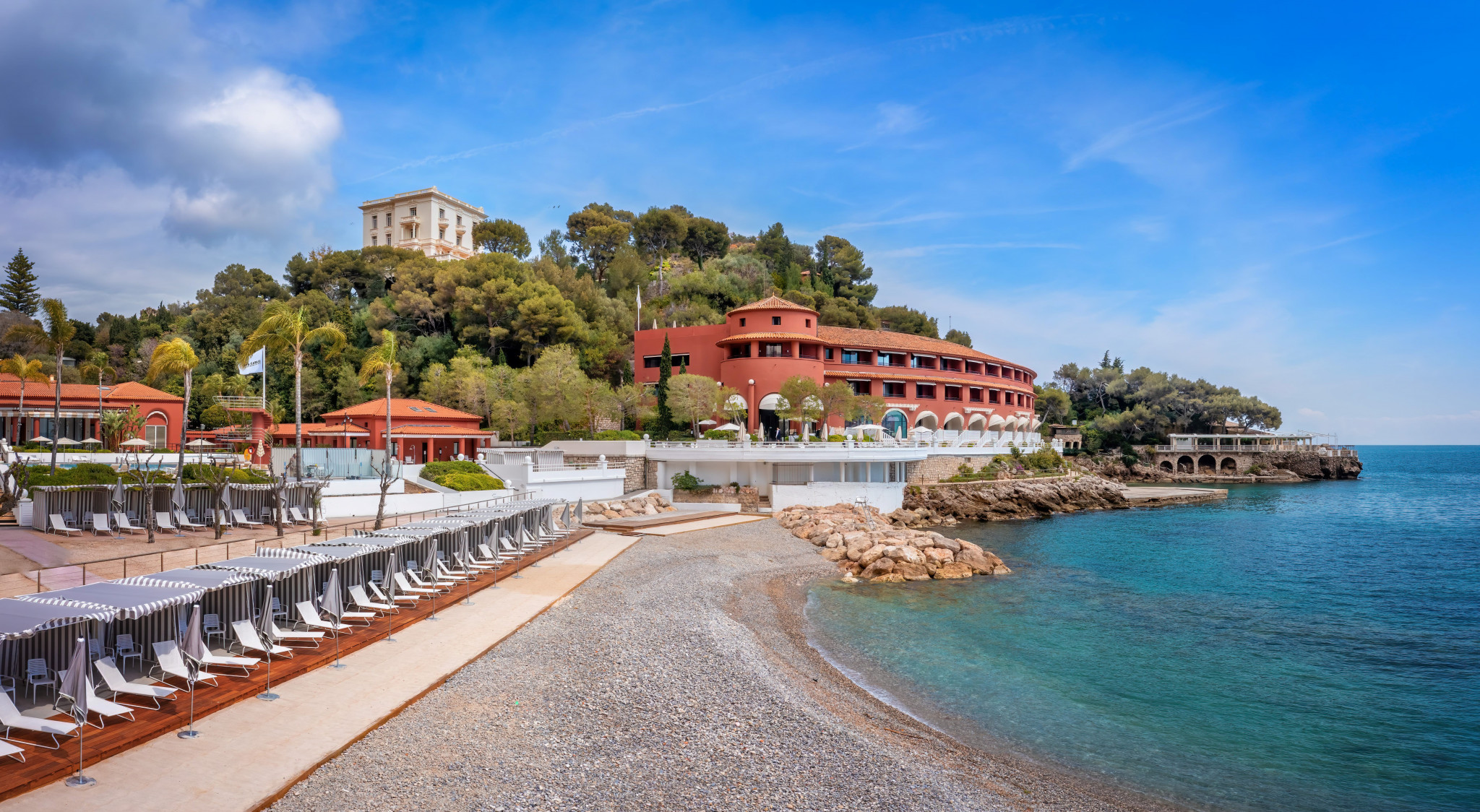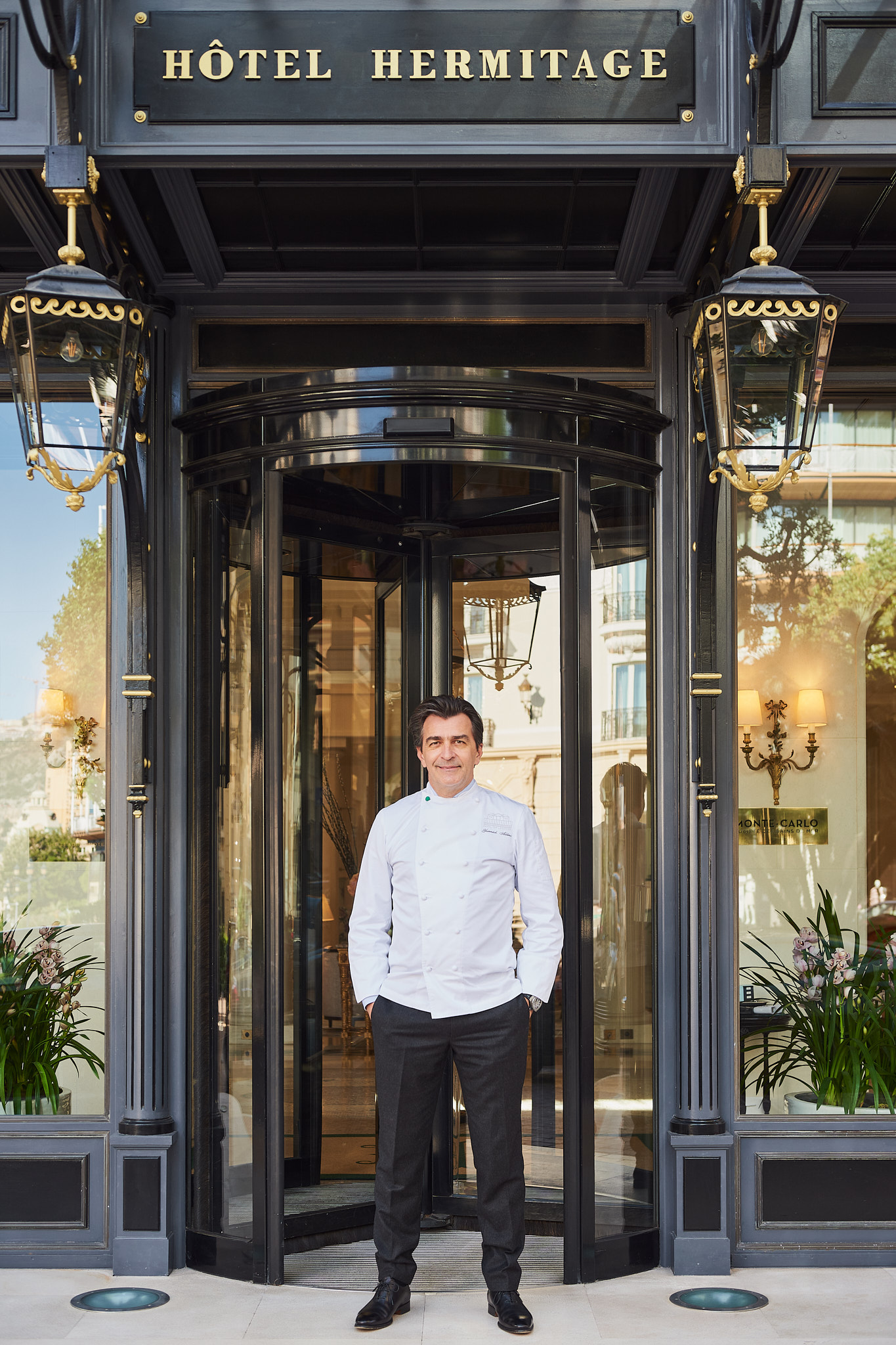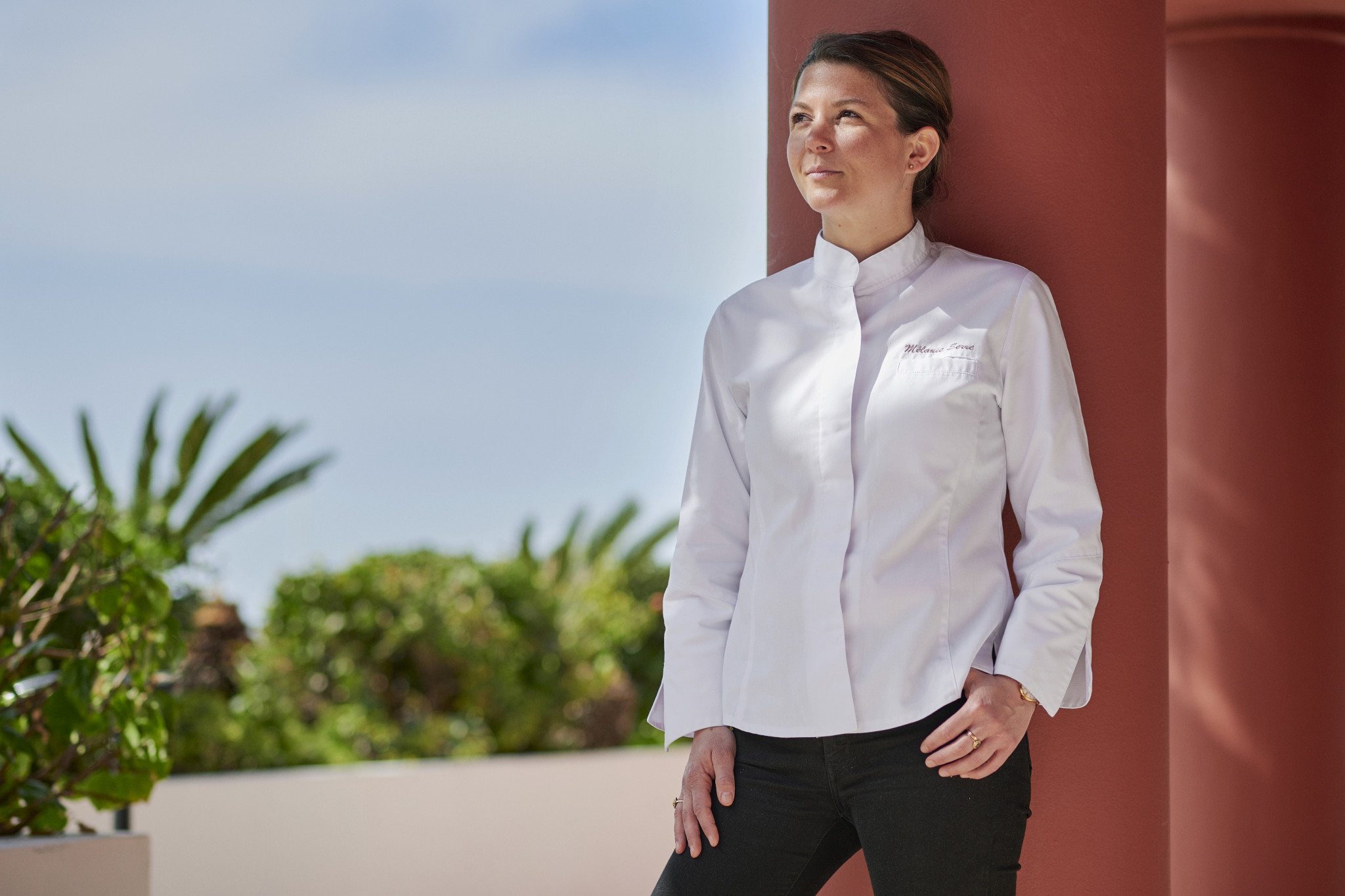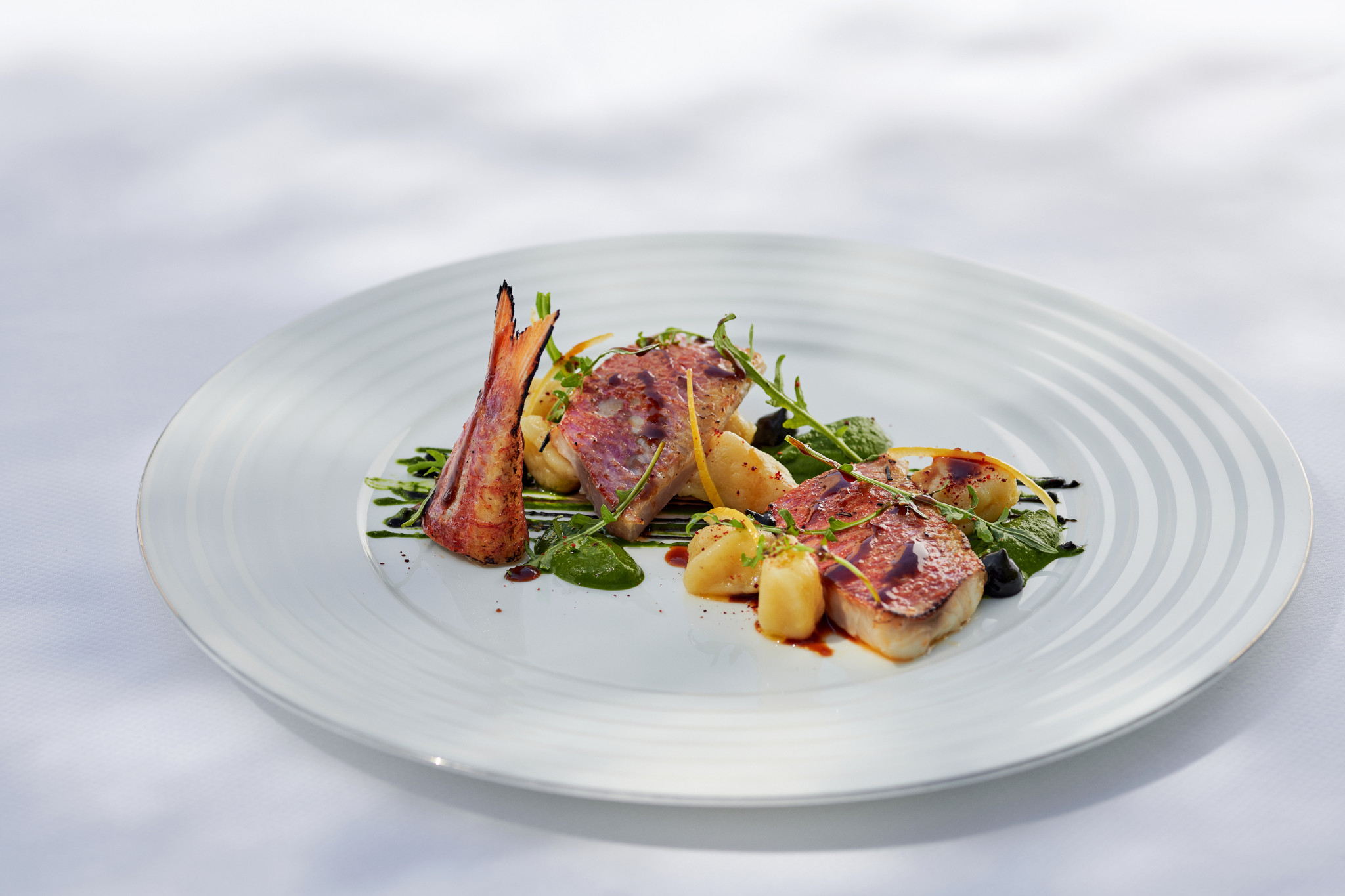
Two bold new restaurant openings have put Monaco’s gastronomic pedigree back in the spotlight
Words: Will Moffitt
When I ask Mélanie Serre what brought her to Monaco, the 36-year old chef gestures towards a coastline of near endless blue sea. From our vantage point high up in the hilly green pastures of Roquebrune-Cap-Martin where wild horses roam, one can see miles of ocean stretching away from the bay below us. It’s a postcard shot, but Serre is not here for a holiday.
From a vegetable garden nearby the talented and smiley young chef, who made her mark by reviving the Parisian neighbourhood bistro Le Louis Vins, carefully selects vegetables and herbs to form the basis of her new menu at ELSA, Monte-Carlo Beach Hotel’s organic wild fish restaurant. These ingredients are then transported down from these lofty heights to Monte Carlo where the chef and her team will fashion them into Mediterranean dishes that draw on seasonal and local flavours.
After taking the helm earlier this month Serre is still learning on the job and adapting to organic processes that are by their very nature unpredictable, but she has big ambitions for the project. “I want Elsa to be a place of life, well-being, and peace,” she tells me, drawing attention to the restaurant's salty seascapes set back from the hustle and bustle of Place du Casino. “Organic cooking for me means getting closer to the land, to the humans who produce the organic ingredients, to better understand their way of working and to understand the future of this profession,” she adds. “This means being as close as possible to the seasons, considering the climatic and ecological conditions that surround us, and how we deal with them.”
The restaurant, which has been Ecocert level 3-certified since 2013, is in keeping with the hotels’ green credentials. Founded in 1928 and designed by French architect Roger Séassal, who shaped it into an art deco-style refuge for the cultural elite, the hotel prioritises sustainable recycling methods and strives to protect local ecosystems. In the comfortable and chic confines of the restaurant overlooking mountains, pine forests, and Monte Carlo beach, guests can enjoy a guilt free dining experience that enriches their palettes without costing the planet.

Arriving at ELSA in sunny mid-May – being an organic restaurant the menu changes with the weather and the seasons – I am treated to an inventive array of dishes, including cockles and clams in cannelloni; fillet of red mullet with potato gnocchi; and a red fruit and black pepper meringue sorbet.
Eating these delicate fusions of fresh fish and vegetables one detects the influence of Joël Robuchon whom Serre trained under at the L’Atelier Étoile Paris. The Frenchman’s focus on simplicity, consistency and seasonal ingredients is an obvious marker, but Serre is also quick to credit Christophe Cussac, whom she first worked with at the nearby Hôtel Métropole Monte-Carlo, and Olivier Bardoux, as formative influences on her pared back style.
“They have all influenced me in their own way [in terms of] how I cook and run a kitchen today,” she says. “I think the most important thing is to take the best from each of our trainers and leave out the things that don't resonate with us, or that we don't want to pass on to future generations.”
It’s a mantra that Yannick Alléno more than embodies. As the creative force behind Pavillion Ledoyen and L’Abysee, the Puteaux-born chef has become a poster boy for a modern kind of French cuisine that borrows from old recipes and traditions but experiments with new methods of delivery and execution. In particular, Alléno is known for his almost scientific pursuit of sauce-making, which he has called ‘the verb of French cuisine’. With six Michelin stars to his name, it's an obsession that has served him well.

The launch of Alléno’s newest venture, Pavyllon (rebranded after his sellout Parisian restaurant) at Hôtel Hermitage Monte-Carlo sees him join Monaco’s pantheon of gastronomic giants. Not least Auguste Escoffier, the father of French cuisine, and Alain Ducasse, who shot to fame here in the 1990s by winning three Michelin stars at Le Louis XV.
As a venue Pavyllon exudes a cool but understated charm. Despite its grand location just off Place du Casino – where Ferraris roam and views pull the eye across a shimmering yacht strewn bay – designer Chahan Minassian has kept things simple and elegant. This aesthetic chimes with Alléno's mission to give Pavyllon a “stylish” and “informal atmosphere” at odds with the formal codes of traditional haute cuisine. A large counter capable of seating 30 guests gives the restaurant a transparent almost bar-like atmosphere and, much like the food it serves, Pavyllon’s music beats louder as the night progresses.
Across a bold and sometimes challenging five course menu Alléno has devised a diverse array of culinary delights. His fine Iberian ham jelly replete with ‘Basque-style’ cockles snaps the palette into life, before a stacked zucchini evens things out. Next up is a green steamed cheese souffle with a smoked eel sauce – rumours circulate that the sauce itself took three months to perfect. This intriguing and playful dish is followed up by veal medallions crusted in parmesan. Alléno concludes the proceedings with a satisfying crescendo of Feuilletine and strawberry accompanied by a rich almond ice cream.

As we depart Pavyllon and the clock hits midnight I am struck by how many people are still lounging around the restaurant drinking wine, talking, or slowly finishing their desserts. Others appear to have ordered more. In a place where everyone wants to find the next party, getting people to stay put is a rare feat.
*Rooms start from €619 per night, including breakfast (all rooms enjoy a balcony looking over the ocean). For further information visit www.montecarlosbm.com/en






